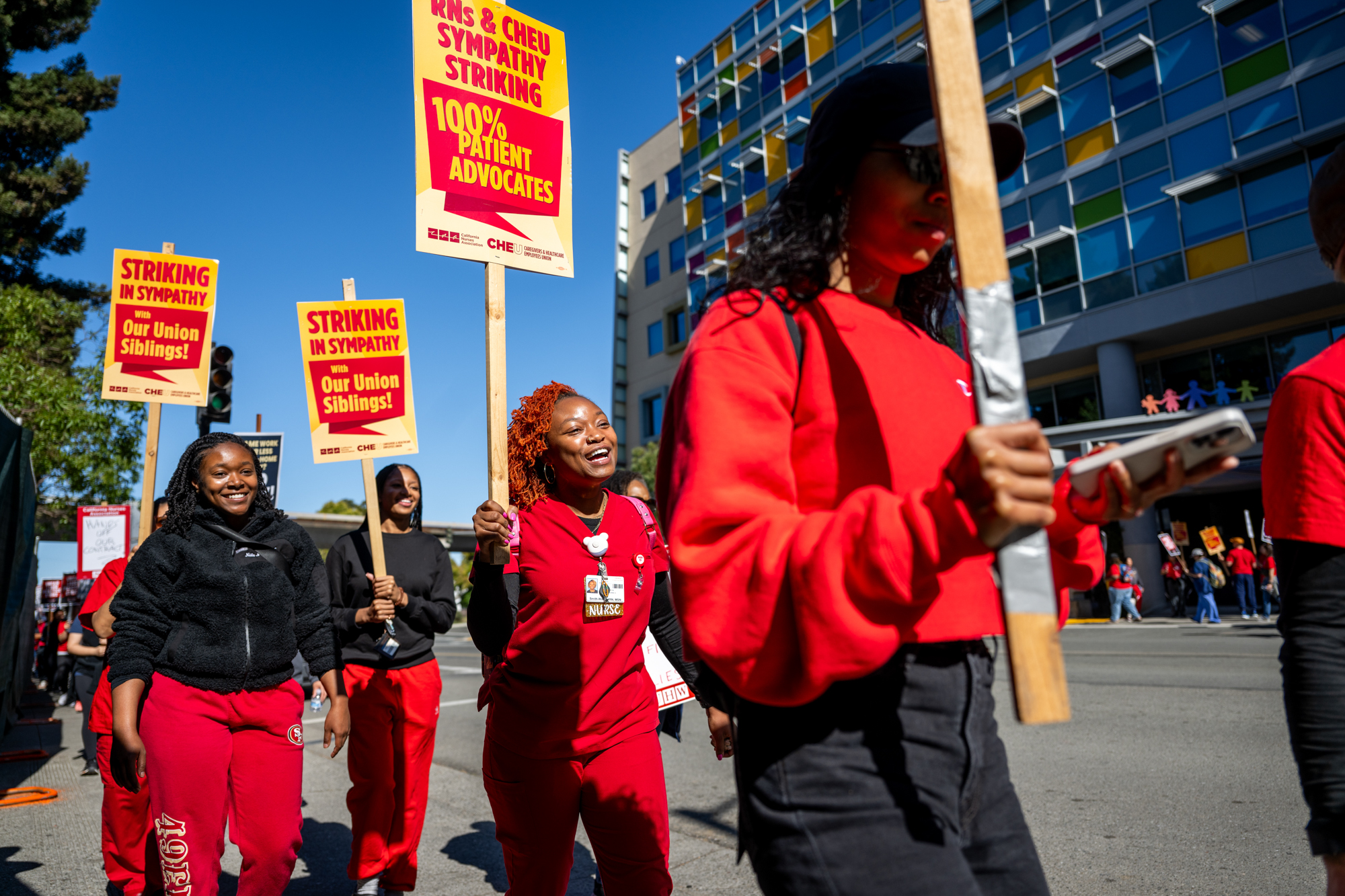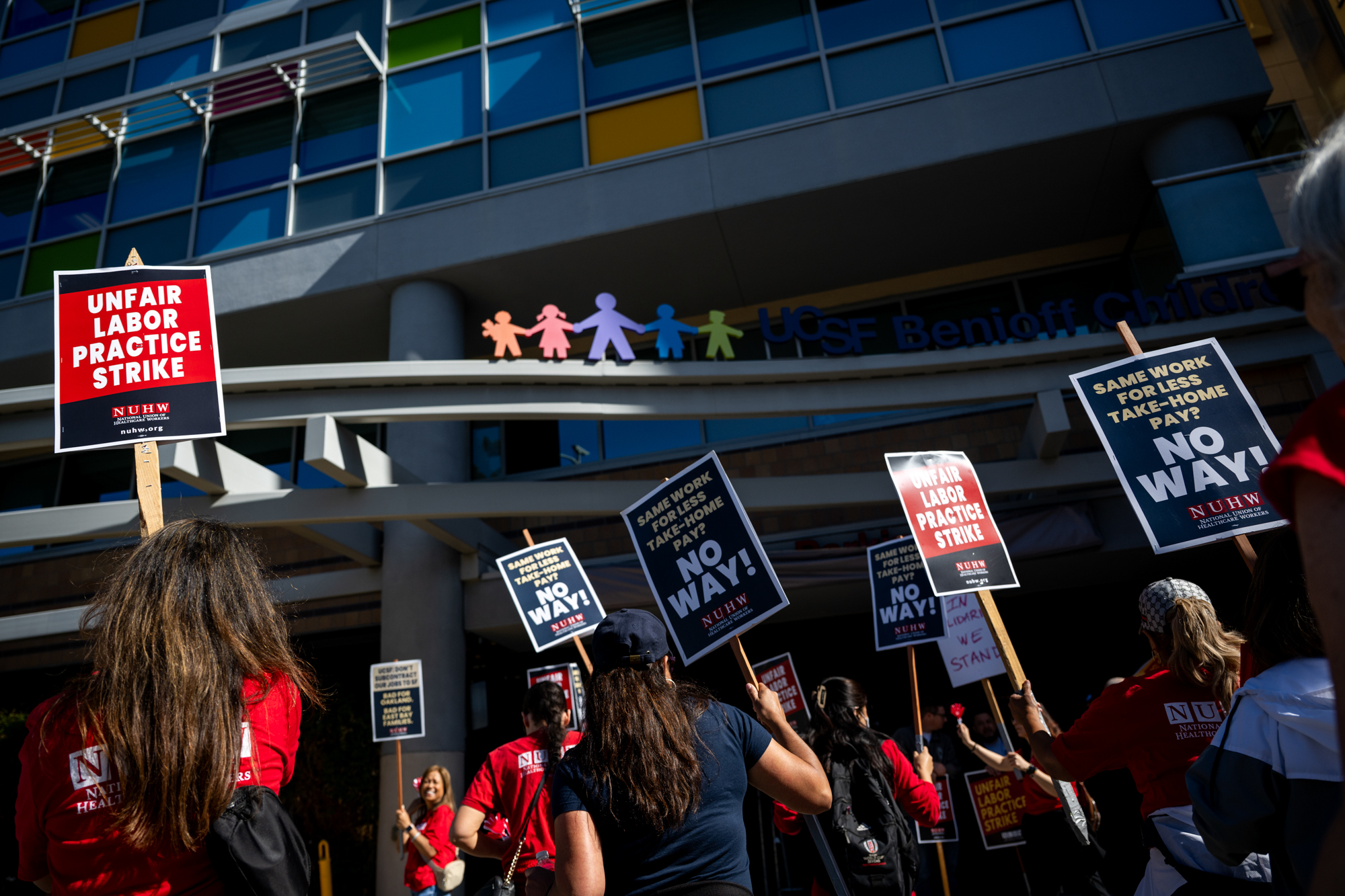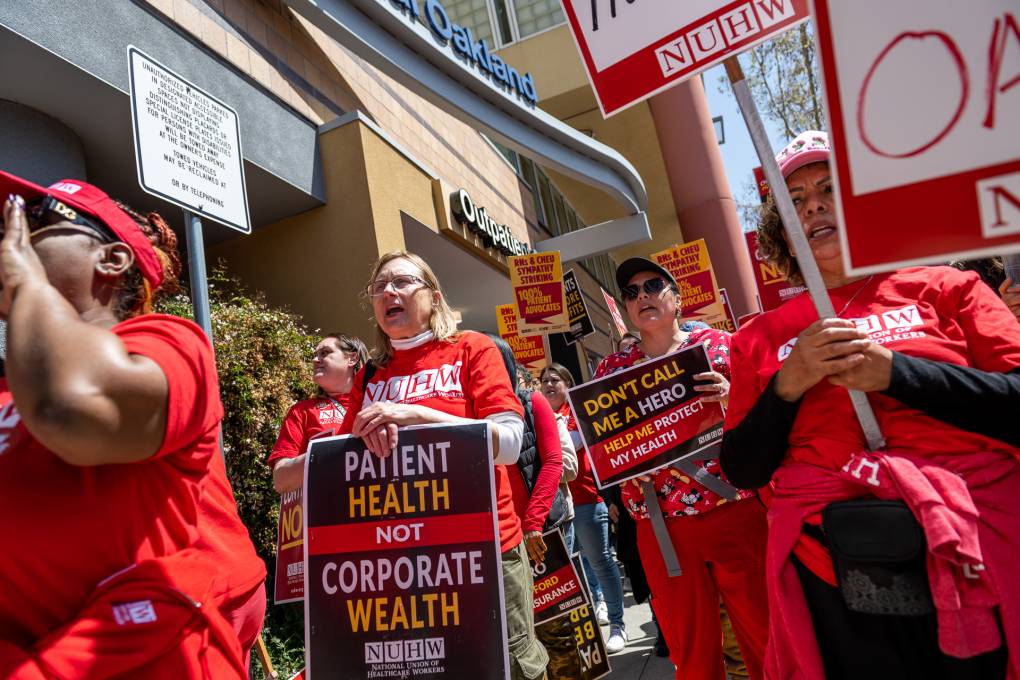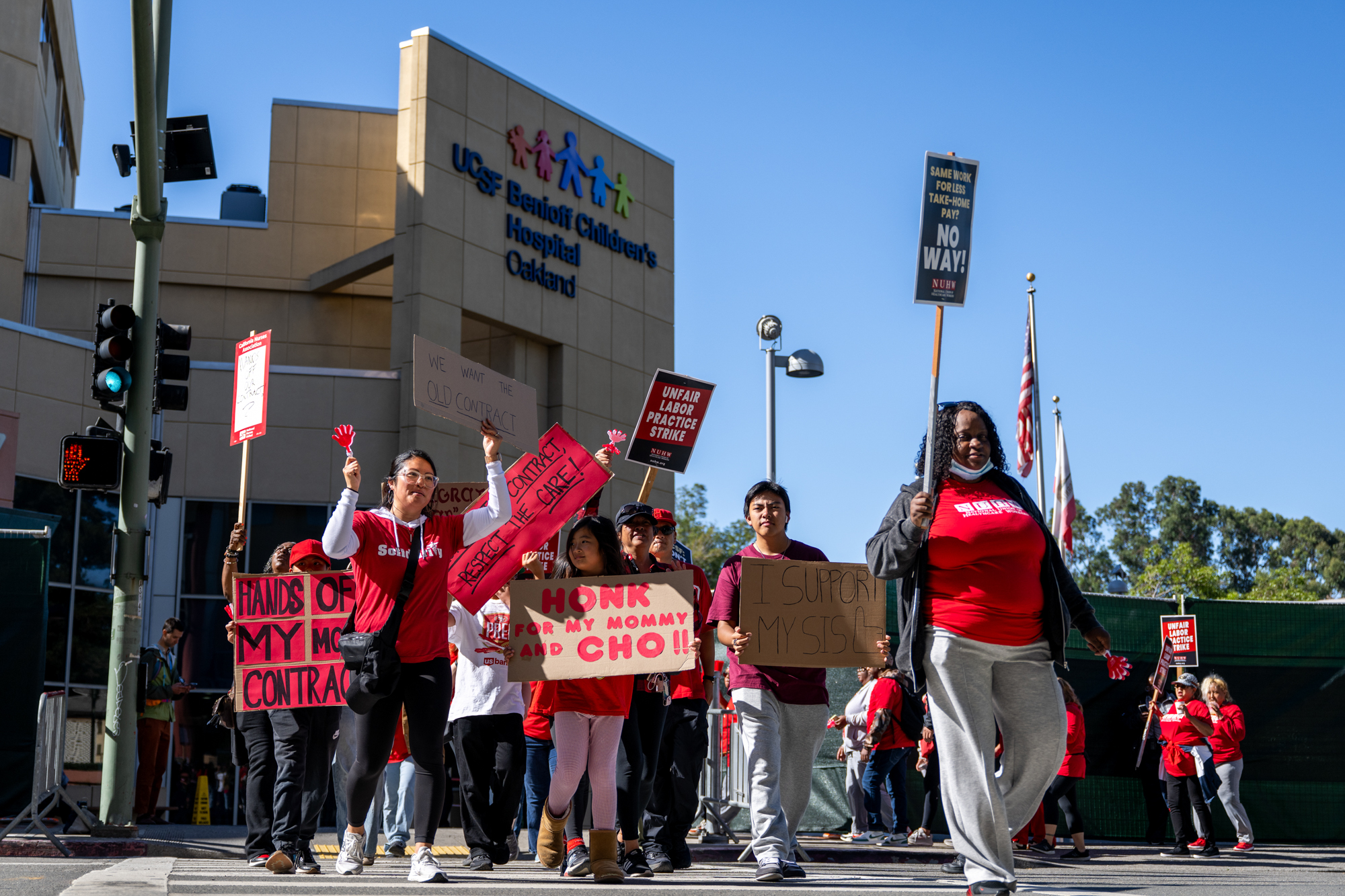Jun 30
Failed to save article
Please try again

Health care workers at UCSF Benioff Children’s Hospital in Oakland strike on June 18, 2025, over UCSF’s efforts to dissolve their union contracts amid a broader integration plan. Union members say the changes threaten job security and could lead to significant cuts in wages and benefits. Hospital employees returned to work on Monday morning after a judge declined to block a UCSF plan to turn them into university employees, which their union called illegal. (Beth LaBerge/KQED)
Health care workers at UCSF Benioff Children’s Hospital Oakland returned to work on Monday morning, ending a strike that lasted nearly two weeks over a plan by the University of California to turn hospital employees into university employees.
The end of the strike came after a federal judge on Friday denied a motion from the National Union of Healthcare Workers to temporarily block UCSF’s plan. The union had argued that the move, which would nullify the union contracts of some 1,300 workers at the hospital and reclassify them as university employees, is illegal.
Despite the ruling and the strike ending, the union said it will pursue further legal action in the coming weeks.
“We’re very disappointed that the judge did not grant our injunction,” said Sal Rosselli, the union’s president emeritus. “The workers were on strike to draw attention to this … illegal act of taking over the employment of these workers and forcing them into unions with far inferior contracts against their democratic will.”
Under the university’s integration plan, which is set to take effect Sunday, most of the NUHW workers who are currently employed by the hospital will be transitioned into one of the university’s public sector unions, which could result in a loss of seniority. Others, such as those in short-hour positions, could be left with no representation and no path forward in the university system, the union said.
The move to integrate could cost nursing assistants, medical technicians and other workers represented by the NUHW around $20 million in reduced take-home pay, according to the union.
 Health workers at UCSF Benioff Children’s Hospital Oakland strike on June 18, 2025. (Beth LaBerge/KQED)
Health workers at UCSF Benioff Children’s Hospital Oakland strike on June 18, 2025. (Beth LaBerge/KQED)Some workers are preparing to leave the hospital if the plan goes through, Rosselli said. Many hospital employees already struggle with the East Bay’s high cost of living, and a few are considering early retirement or employment elsewhere if the situation grows more dire.
“There are scores and scores of open positions at Children’s Hospital today that they’re having trouble filling,” Rosselli said. “You can imagine that difficulty is complicated by having to offer $10,000 a year on average less in terms of income.”
In a statement, UCSF said the integration will allow the hospital to provide better care to patients and families who “should not have to navigate two separate systems to get their services their children need.” Workers will also be provided with expanded benefits and career opportunities, the university added.

“This transition is also critical to delivering on our $1.6 billion investment in UCSF Benioff Children’s Hospital Oakland, which will strengthen the hospital’s role as a leading center for pediatric care in the East Bay for decades to come,” the statement reads.
As UC employees, workers would have to pay an average of $10,000 a year more toward health and benefits plans, NUHW said. Rosselli described the benefits being offered by the university as inferior to those already provided to workers under their current contracts.
In April, 98% of NUHW’s members at the hospital voted against UCSF’s integration plan, which it first proposed in January. The union filed a formal grievance in response, which it alleges Children’s Hospital Oakland has refused to process.
A hearing to compel arbitration is scheduled on July 17, according to the union. NUHW’s main legal argument against integration hinges on a stipulation in its current contracts with the hospital that prohibits subcontracting — which it said this plan amounts to.
The strike follows a series of major health care labor battles across the country in recent years, including several actions this year alone at UC medical centers throughout California, where workers have staged short strikes over alleged unfair labor practices.
 Health workers at UCSF Benioff Children’s Hospital Oakland strike on June 18, 2025, over UCSF’s efforts to dissolve their union contracts amid a broader integration plan. (Beth LaBerge/KQED)
Health workers at UCSF Benioff Children’s Hospital Oakland strike on June 18, 2025, over UCSF’s efforts to dissolve their union contracts amid a broader integration plan. (Beth LaBerge/KQED)On Wednesday, UCSF also announced it had issued layoff notices to about 200 employees across its system — representing about 1% of its workforce — including some front-line caregivers like rehabilitation specialists.
The decision, UCSF said in a statement, is part of a broader effort to address serious financial challenges.
Like many health systems across the country, UCSF Health has experienced rising costs of operations while facing diminished reimbursements for services,” it said. “While this is a difficult decision, it was necessary to maintain financial stability and continue to deliver the many vital healthcare services we provide in San Francisco and across the Bay Area.”
Unions representing the laid-off workers were quick to slam the move, saying it would further exacerbate UC’s systemwide staffing crisis, at the expense of patients.
“As a $10.2 billion public hospital system, UCSF Health has the resources and the obligation to retain crucial staff who are integral to delivering timely patient care,” the University Professional and Technical Employees union, which represents some of the laid-off workers, said in a statement. “The lack of notice to the union or refusal to ensure that layoffs were not needlessly disruptive reflects a disregard for patient care.”








 English (US) ·
English (US) ·